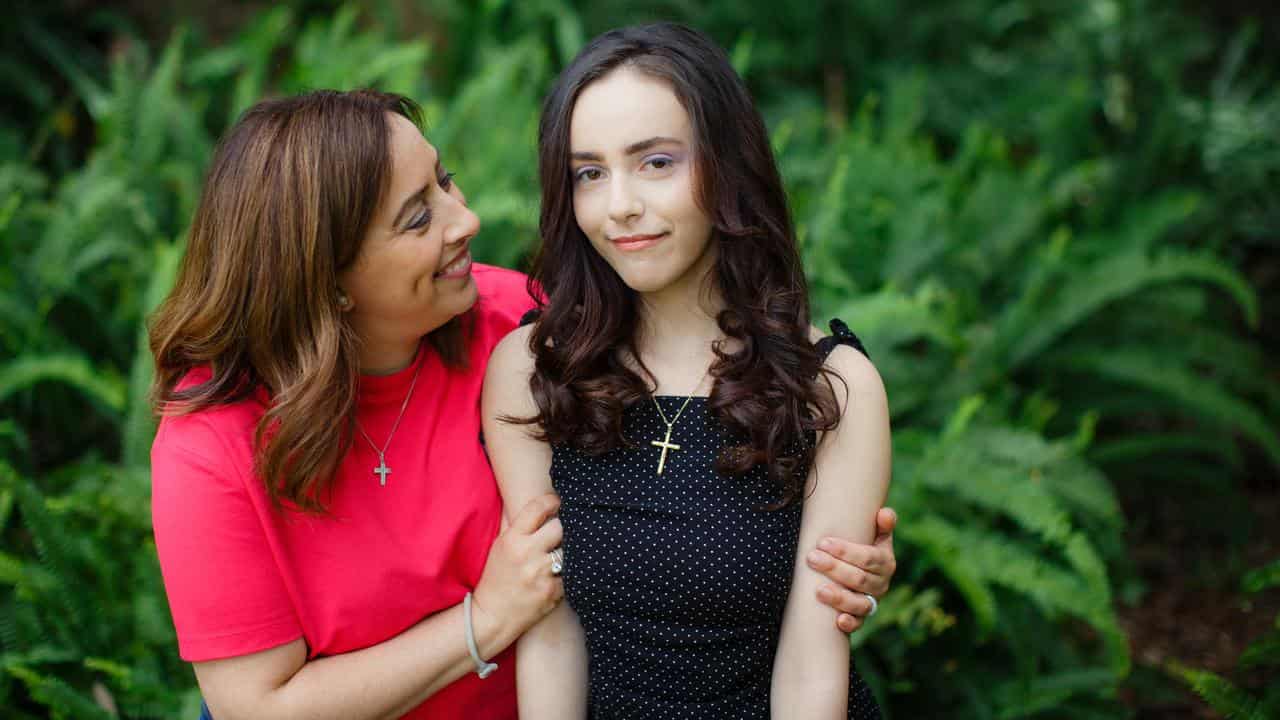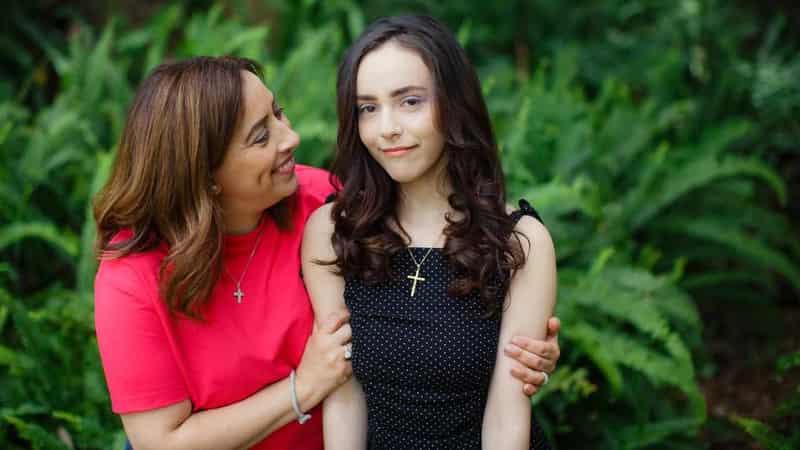
Most people think dementia is only something to worry about in old age but the disease is surprisingly common in children, placing a devastating burden on kids and their families.
Childhood dementia, like its geriatric equivalent, is a general term for a group of genetic disorders that rob kids of their memory and their ability to walk, talk and recognise loved ones.
Niki Markou's daughter Angelina was 14 when she first starting showing symptoms of Lafora disease - a rare neurological condition most common in teenagers.
"It was a shock because you're like, 'what do you mean she's got dementia, she's too young'," Ms Markou told AAP.
Seeing a loved one lose their faculties and no longer resemble the person they once were in old age is heartbreaking enough.
For Angelina, dementia has not only robbed her of her abilities but also her hopes and dreams and any chance of leading a normal teenage life.
For a parent watching it unfold, the suffering is unbearable.
"She wanted to do beauty and makeup and even when she couldn't straighten her hair anymore she would just cry or bang the table because she couldn't do it out of frustration," Ms Markou says.
"And it's just getting harder and harder."
Childhood dementia is caused by 145 individual genetic disorders which, while collectively significant, are individually quite rare, making it difficult for researchers and health planners to understand and treat it.
A study released ahead of childhood dementia day on Wednesday aims to plug that knowledge gap.
It found that each year more than 100 babies born in Australia will develop childhood dementia, as many as cystic fibrosis, and 91 Australians die as a result, as many as from childhood cancer.
University of Adelaide paediatric neurologist Nicholas Smith led the review, which analysed and modelled published data from around the world.
Because there is less awareness dementia can occur in children, health resources and structures in place for kids are much more limited than for adults, he said.
"Those supports are largely absent for childhood onset dementia and they are no less important in childhood than they are in adults," Dr Smith said.
Even explaining her daughter's condition to medical professionals, let alone getting NDIS support, is a challenge for Ms Markou.
It was years before Angelina had access to a neurological ward, where staff could properly care for her.
For the last few weeks, Angelina has been staying at the Adolescent and Young Adult Hospice in Sydney's northern beaches - Australia's first service for young people with life-limiting illness.
It's the first time in five years Ms Markou has been able to get a full night's sleep.
"It's exhausting," she says.
"I've had four weeks of sleeping every night by myself and that's priceless. I actually feel reset for the first time since her condition has come."
She hopes more awareness of childhood dementia will lead to more funding and more youth hospices.









